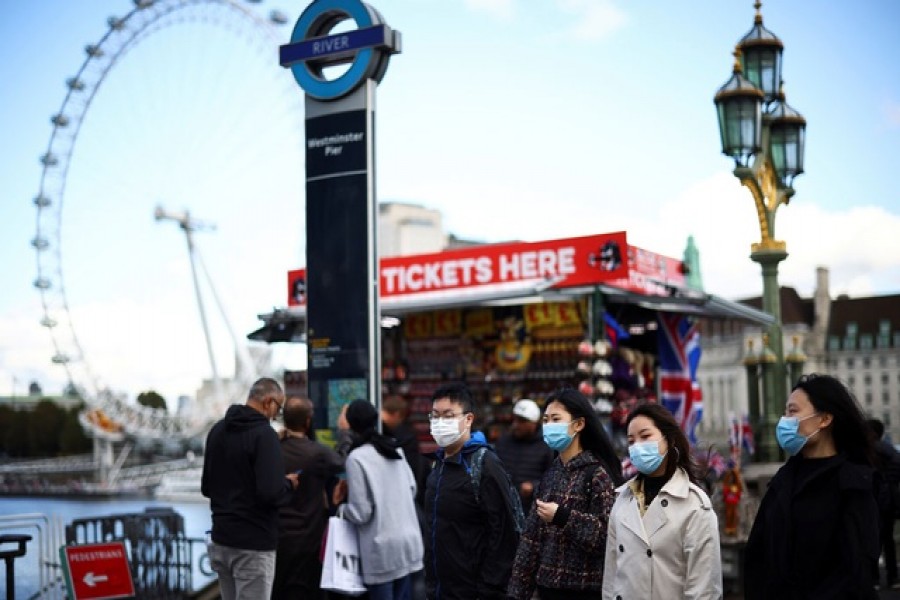
Published :
Updated :

England faces a month of nationwide lockdown restrictions from Thursday after Boris Johnson detailed new plans in a bid to combat coronavirus.
Pubs, restaurants, gyms and non-essential shops will close, the prime minister said, but schools, colleges and universities can stay open.
Mr Johnson is expected to deliver a statement in the Commons on Monday, reports the BBC.
The announcement has sparked anger from some Tory MPs, and business leaders have warned of a "bleak midwinter".
Writing in the Sunday Telegraph, former Conservative leader Sir Iain Duncan Smith accused the prime minister of "giving in to the scientific advisers".
Sir Iain said the Scientific Advisory Group for Emergencies (Sage) had "pressurised" the government into taking this decision, with its members "publicly lecturing" the government.
He urged Mr Johnson not to continue "encouraging businesses to reopen only to force them to lock down again".
Under the new restrictions:
- People are being told to stay at home unless they have a specific reason to leave, such as work which cannot be done from home and education
- And people are also allowed to leave home for exercise medical reasons, food and other essential shopping and providing care for vulnerable people or for volunteering
- Meeting indoors or in private gardens will not be allowed
- But individuals can meet one other person from another household outside in a public place
- Pubs, bars, restaurants and non-essential retail across the nation will close but takeaways and click-and-collect shopping can remain open
- Leisure and entertainment venues, including gyms, will also close
- Construction sites and manufacturing workplaces can remain open
- People are still allowed to form support bubbles
- Children can move between homes if their parents are separated
- Clinically vulnerable people are asked to be "especially careful" but people are not being asked to resume shielding
Hours before the furlough scheme was due to end, the government said that it would be extended until December, covering 80 per cent of employee wages.
Dame Carolyn Fairbairn, Confederation of British Industry director general, said extending furlough was a "vital step", adding that affordable mass testing would be the "game-changer" for businesses, enabling more companies to stay open.
She said: "For many businesses, a second national lockdown marks the start of a bleak midwinter."
Richard Burge, chief executive of London Chamber of Commerce, said businesses were back in "survival mode" and that details of a support package must accompany the restrictions when put before Parliament.
He welcomed the 80 per cent furlough scheme, but said grants should be made available, and bank interest and charges should be suspended.
Both the chief executive of the British Retail Consortium, Helen Dickinson, and the chief executive of the New West End Company, Jace Tyrrell, described the lockdown as a "nightmare before Christmas".
Meanwhile, travel firms have warned of a "complete shutdown" across the industry when England goes into lockdown again and have called for the government to support the sector.
When the "stay at home" order comes into effect from Thursday, travel and overnight stays in the UK and abroad will be restricted.


 For all latest news, follow The Financial Express Google News channel.
For all latest news, follow The Financial Express Google News channel.